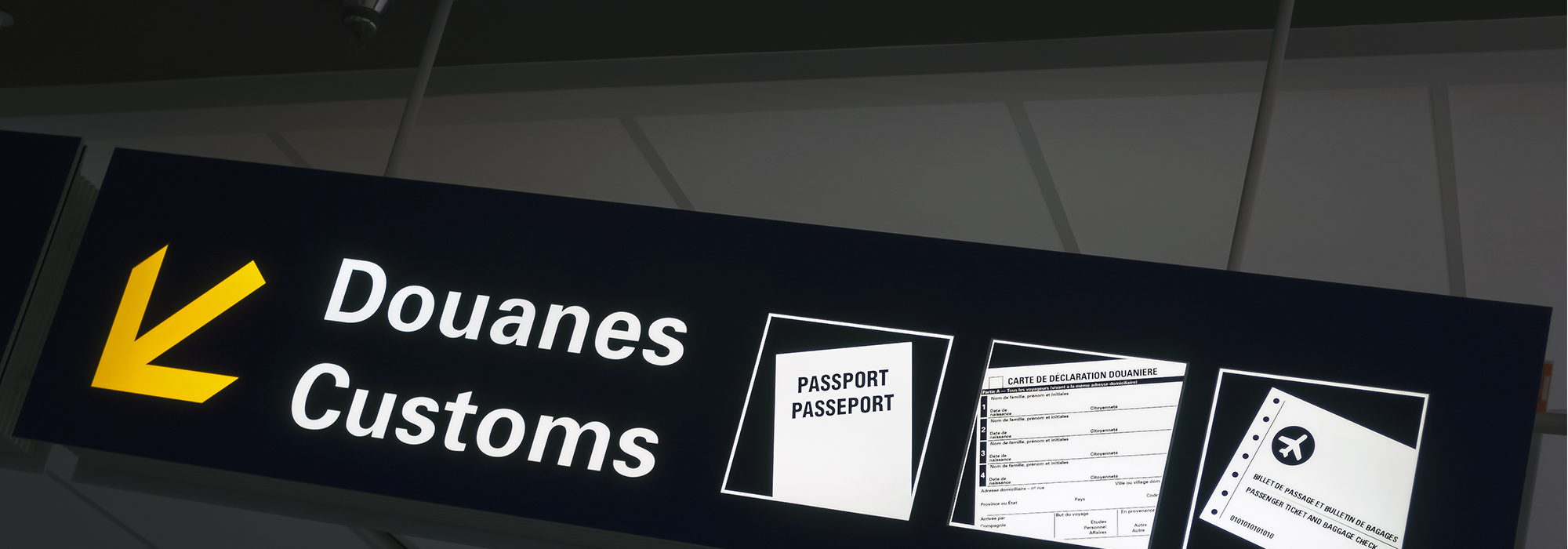
Permanent residents of Canada are currently required to possess a Permanent Resident Card, commonly referred to as a “PR Card,” in order to board commercial transport to Canada. Processing times for new PR Cards currently exceed 100 days, and the Immigration, Refugees and Citizenship Canada (“IRCC”) Twitter account recently advised permanent residents seeking to renew their PR Cards to apply 9 months in advance of travel in order to avoid trip disruptions. Permanent residents are often left stranded abroad, or find themselves stuck in Canada unable to travel internationally, for months. The situation is untenable, and it is time for the Government of Canada to eliminate PR Cards, let permanent residents travel to Canada using the new Electronic Travel Authorization system, and implement a “residency obligation amnesty” until the government develops a better system to track entries and exits to and from Canada.
This will focus on the impact of PR Card processing delays to those travelling by air to Canada, as this is where the issue is most pronounced. However, it is important to note that the PR Card requirement applies to all commercial transport to Canada, including air, boat, rail, and bus.
The Residency Obligation
When someone immigrates to Canada they don’t automatically become a Canadian citizen. Rather, they become a permanent resident. A permanent resident has the right to reside in any Canadian province, attend any educational institution, and work in any legal employment. Permanent resident status can only be lost in prescribed circumstances, including when a permanent resident becomes a citizen, when the Government of Canada establishes that the permanent resident is inadmissible to Canada for having engaged in serious criminality or misrepresentation, and, most commonly, where it determines that the permanent resident has not complied with Canada’s permanent resident residency obligation.
Canadian immigration legislation requires that all permanent residents spend 730 days in Canada during every five year period. This is typically referred to as the “2 year out of 5” rule. In addition to time spent physically in Canada, the time a permanent resident spends outside Canada accompanying a Canadian spouse or common-law partner counts towards the 730 days, as does the time that a permanent resident spends working abroad on a short term assignment for a Canadian business.
In exceptional circumstances, permanent residents who do not meet the residency obligation can retain their status if there are exceptional humanitarian & compassionate considerations justifying it. Typical satisfactory reasons include that the permanent resident was spending time outside of the country as the primary caretaker for a sick relative, that they were a minor accompanying their parents outside Canada and had no meaningful say in whether they remained outside of Canada, or that they were attending post-secondary education outside of Canada.
PR Cards
The PR Card is the physical proof that someone is a permanent resident of Canada. It is a wallet-sized card that must be presented at an international airport in order for a permanent resident to board a commercial airplane to Canada. If a permanent resident arrives at a Canadian port of entry without a PR Card, but can demonstrate to the border official that they are a permanent resident of Canada, then they will still be admitted to Canada. However, the Canadian government may fine the airline for allowing the permanent resident to board an airplane to Canada without a PR Card. For this reason, airlines will generally deny boarding to anyone who they identify as being a permanent resident without a PR Card.
There are two types of PR Cards. Initial PR Cards are automatically processed by IRCC once someone becomes a permanent resident of Canada. They are valid for five years. After five years, permanent residents must apply to renew their PR Cards, with each subsequent PR Card also being valid for five years if they wish to travel internationally commercially. As part of the application process, IRCC requires that permanent residents demonstrate that they meet the residency obligation.
Unfortunately, for whatever reason, Parliament created the permanent resident residency obligation without also enabling IRCC to track exits from Canada. While the government does track entries, it does not track exits. Given the permanent resident residency obligation one might have assumed that the Canadian government would have installed PR Card swiping machines at airports and other border crossings so that permanent residents could voluntarily indicate to IRCC when they leave Canada. However, no such system exists. Accordingly, permanent residents seeking to renew their PR Cards must provide to IRCC supporting documents to establish when they were inside and outside of Canada, including passport stamps, boarding passes, employment documentation, education documentation, etc. For frequent travellers, PR Card renewal applications can be thicker than their immigration applications.
Processing Delays
The IRCC website states that it is currently taking 105 days to process initial PR Cards. It further states that this does not include the time that it takes the department to mail the PR Card, which can add an additional 6 weeks. The IRCC website further states that while someone with travel plans can request an urgent PR Card, that urgent processing cannot occur in less than 6 weeks. The inane result is that after someone immigrates to Canada they are unable to travel by commercial aircraft internationally for a period ranging from 6 weeks to 4 months.
The IRCC website further states that the processing time to renew a PR Card is 180 days, plus up to an additional 6 weeks to mail the actual card. Even the stated processing time seems optimistic considering that on the IRCC’s Twitter account the Department recently recommended that permanent residents apply to renew their cards 9 months in advance of it expiring. As a result of ever increasing delays, it is not uncommon for permanent residents to apply several months in advance of their PR Card expiring only to be unable to travel for several more months.
At the same time, it typically takes less than one month for IRCC to process Canadian passport applications, and urgent applications can be processed in under 48 hours.
Now of course, it is not the case that a permanent resident who is outside of Canada without a PR Card can never return to Canada. They have two options. The first is for them to travel by air to the United States and then arrange for a family member or friend to pick them up so that they can enter Canada through a land crossing. While the Canada Border Services Agency initially viewed such actions suspiciously this is now becoming a widely accepted practice as most border officials recognize that IRCC’s processing delays are forcing Canadian permanent residents to travel through the United States in order to enter Canada. One can only assume that Canadian airports are unimpressed that the Canadian government is essentially driving business to American airports.
The second option is for the permanent resident to apply for a Permanent Resident Travel Document (“PRTD”) at a Canadian consulate. A PRTD is a one-time entry permit that a Canadian consulate will affix to a permanent resident’s passport. It can take anywhere from days to weeks to process, and the IRCC document checklist states that PRTD applicants must enclose with their application evidence that they meet the permanent resident residency obligation by providing documents such as school or employment records, tax documents, marriage licenses, entry and exit records, pay statements, credit card and phone records, etc. This is not very easy to do when someone is outside Canada, and it is not uncommon to hear of permanent residents being stranded for months while their PRTD is processed.
The Electronic Travel Authorization
Traditionally, Canadian permanent residents who are also citizens of countries whose nationals are exempt from the requirement to obtain temporary resident visas to visit Canada have more or less been able to ignore the PR Card requirement. This includes citizens of most European states, the United States, Japan, Australia, New Zealand, Israel, etc. The reason that they were generally able to ignore the PR Card requirement is that the airlines had no meaningful way of verifying whether these individuals were Canadian permanent residents or simply tourists wishing to visit Canada. Accordingly, the Canadian government almost never fined airlines that allowed permanent residents of these countries to board aircraft without PR Cards.
However, as of March 15, 2016, most foreign nationals who are exempt from the requirement to obtain a TRV to enter Canada, excluding Americans, will be required to obtain an Electronic Travel Authorization (an “eTA”) before they travel to Canada by air. As such, it will no longer be the case that citizens of these countries will be able to simply purchase tickets and board planes to travel to Canada. Rather, they will be unable to board commercial aeroplanes to Canada unless the airlines first confirm that passengers possess eTAs through the Government of Canada’s new Interactive Advance Passenger Information system.
The eTA is an online application, and the travel authorization is also electronic. Applicants need to provide their passport details, personal details, contact information, and answer background questions regarding their health, criminal history, travel history, and whether they are a permanent resident of Canada. Permanent residents cannot get eTAs, and are instead told that they need to apply for PR Cards if they do not already have one. As well, once a foreign national who possesses an eTA becomes a permanent resident, the eTA becomes invalid.
The obvious consequence is that for the first time citizens of most European states, Japan, Australia, New Zealand, Israel, etc., who are Canadian permanent residents will be impacted by the PR Card processing delays. Indeed, these delays are likely only going to worsen as the number of permanent residents who need PR Cards will increase after March 15.
Get Rid of PR Cards, and Implement a Residential Obligation Amnesty
It is hopefully clear from the above that the current PR Card system is untenable, and that reforms are needed.
Indeed, the Government of Canada should also abolish PR Cards completely. If foreign nationals can travel to Canada using an electronic system, then surely permanent residents should be able to as well. Getting rid of the physical card and instead issuing an eTA, or something similar, to permanent residents would presumably reduce the time that it takes to process an initial permanent resident travel authorization to zero. It could even be done at the time an applicant becomes a permanent resident. For renewal applications it would eliminate the up to six week delay in mailing times.
As well, IRCC should immediately and temporarily implement is a “residency obligation amnesty” for permanent residents renewing their travel authorizations. Canada’s Immigration and Refugee Protection Regulations state that IRCC officers shall issue a permanent resident a PR Card if (a) the permanent resident has not lost permanent resident status, (b) has not been convicted for fraud involving the misuse of a PR Card, (c) has submitted a complete PR Card application, and (d) returns their previous PR Card, unless it has been lost, stolen, or destroyed. The law does not require that IRCC to make a permanent resident residency obligation determination prior to issuing the card. While ideally IRCC would make such determinations to ensure residency obligation compliance, until the Government of Canada devises a system to better track exits or reduce processing times by other means, it should temporarily stop enforcing the residency obligation during the PR Card application process.
Both of the above two recommendations seem obvious. Whenever a solution seems obvious I assume that I have missed something. If a reader knows why either recommendation above cannot be done, please let me know.
However, regardless of the solution, it is important that the Government of Canada act quickly to end the inability of permanent residents to travel internationally while they wait for PR Cards. It is puzzling that IRCC has allowed the issue to worsen as it has. It is also disheartening to know that the situation will likely continue to be unaddressed until at least the eTA requirement comes into force. I am not one who typically views things through racial prisms. However, if after years of ignoring the inability of permanent residents who are citizens of China, India, the Philippines, and other “dark skinned” nations to travel while they wait for PR Cards, the Government of Canada were to suddenly take action only when the citizens of predominantly European nations become similarly affected, then it will be perfectly reasonable for people to conclude that it was only when “white people” were impacted that the Canadian government took action.







